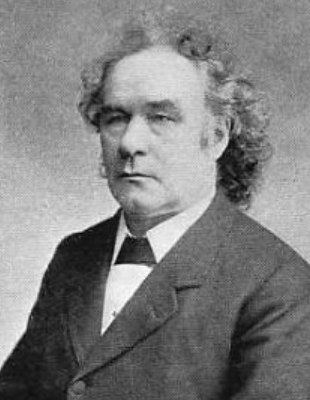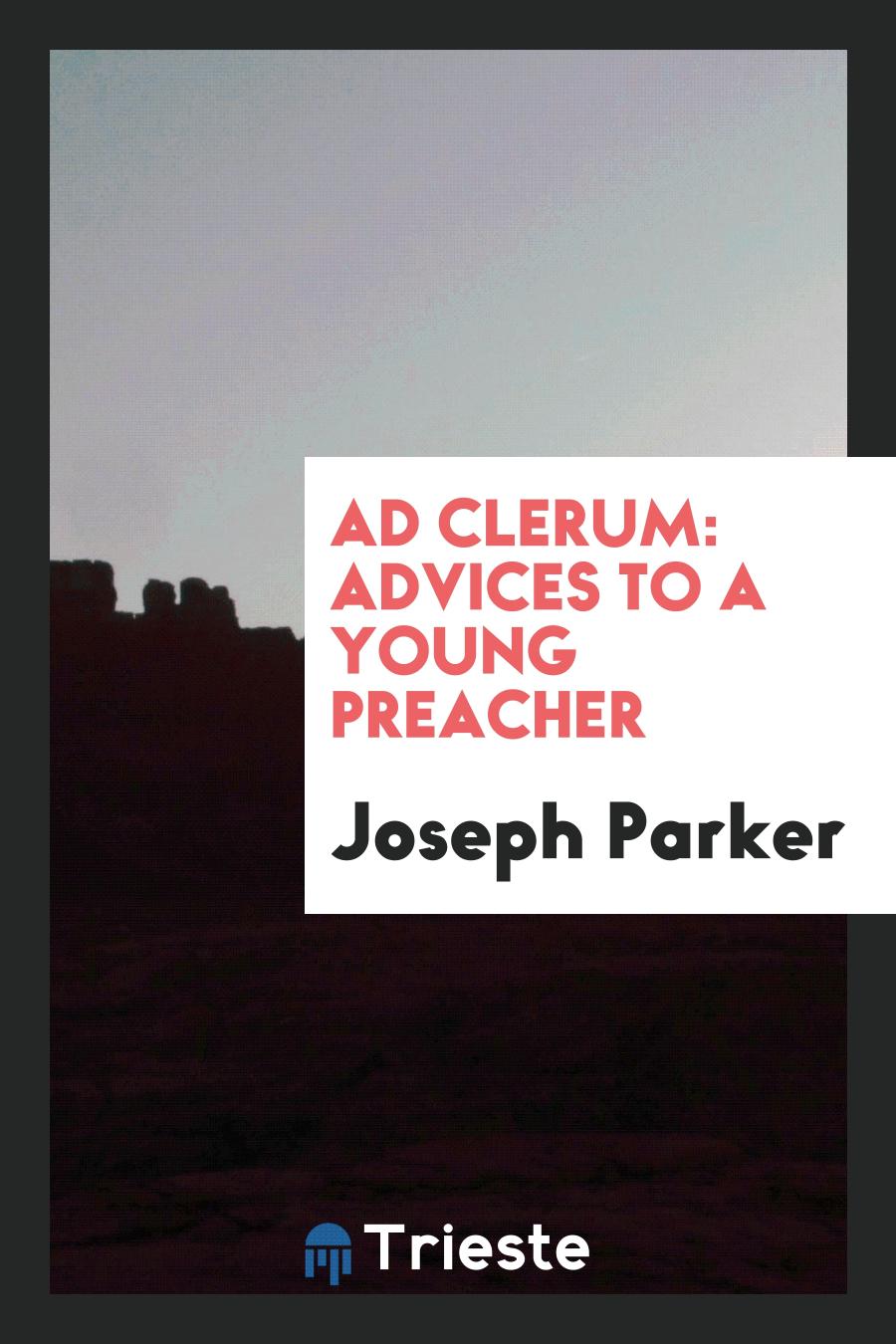
Joseph Parker
Joseph Parker (9 April 1830 - 28 November 1902) was an English Congregational minister.
Born in Hexham, Northumberland, Parker was the son of Teasdale Parker, a stonemason, and Elizabeth (née Dodd). He managed to pick up a fair education, which afterwards he constantly supplemented. In the revolutionary years from 1845 to 1850 young Parker as a local preacher and temperance orator gained a reputation for vigorous utterance. He was influenced by Thomas Cooper, the Chartist, and Edward Miall, the Liberationist, and was much associated with Joseph Cowen, afterwards MP for Newcastle upon Tyne.
At the time, he was wooing a local girl - Ann Nesbitt, daughter of William Nesbitt, a farmer of Horsley-on-Tyne. He referred to her as "Annie, the soul I loved, the girl that saved me, and made me a man". Horsley was about ten miles from Hexham, and he became acquainted with the Nesbitts through his preaching there, and Mr Nesbitt, a trustee and deacon of Horsley Congregational Church was especially interested in the young preacher, who, on Sunday nights, brought them the news of the town and slept in a "snug little chamber" in the old farmhouse.
Ann and Joseph were married on 15 November 1851 in Horsley Congregational Church, though Joseph was only twenty-one years old, and they had twelve years' happy married life - consisting of six months in Horsley, a year or two in London, five years in Banbury, and five in Manchester - until Ann died in 1863. However, when Horsley Congregational Church was rebuilt, Dr. Parker presented a beautiful stained glass window, bearing the following inscription: "In ever loving memory of Ann Nesbitt, for twelve years the devoted wife of Joseph Parker, Minister of the City Temple, London, this window is reverently and gratefully erected by the man whose life she did so much to mould". The pulpit of grained oak was given at the same time and was inscribed: "In grateful memory of William Nesbitt of Horsley Hills, to whom the Church herein assembling is deeply indebted for long-continued and invaluable service, this pulpit is affectionately erected by his son-in-law Joseph Parker." Both the stained glass window and the pulpit can still be viewed at Horsley Congregational Church. The site is now managed by The Hearth Centre (Horsley) Ltd locally known as The Hearth - see www.thehearth.co.uk . Regular church services are still held in the church.
In the spring of 1852 he wrote to Dr John Campbell, minister of Whitefield Tabernacle, Moorfields, London, for advice as to entering the Congregational ministry, and after a short probation he became Campbell's assistant. He also attended lectures in logic and philosophy at University College London. From 1853 to 1858 he was pastor at Banbury. His next charge was at Cavendish Street, Manchester, where he rapidly made himself felt as a power in English Nonconformity. While here he published a volume of lectures entitled Church Questions, and, anonymously, Ecce Deus (1868), a work provoked by Seeley's Ecce Homo. The University of Chicago conferred on him the degree of D.D.
On his death (in London) he was succeeded as minister of the City Temple by Reginald John Campbell.

